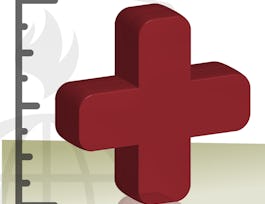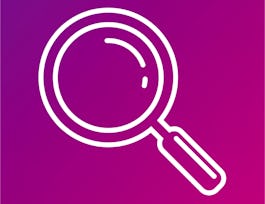Biostatistics is an essential skill for every public health researcher because it provides a set of precise methods for extracting meaningful conclusions from data. In this second course of the Biostatistics in Public Health Specialization, you'll learn to evaluate sample variability and apply statistical hypothesis testing methods. Along the way, you'll perform calculations and interpret real-world data from the published scientific literature. Topics include sample statistics, the central limit theorem, confidence intervals, hypothesis testing, and p values.


Hypothesis Testing in Public Health
This course is part of Biostatistics in Public Health Specialization
Taught in English
Some content may not be translated

Instructor: John McGready, PhD, MS
17,059 already enrolled
Included with 
Course
(600 reviews)
95%
Recommended experience
What you'll learn
Use statistical methods to analyze sampling distribution
Estimate and interpret 95% confidence intervals for single samples
Estimate and interpret 95% confidence intervals for two populations
Estimate and interpret p values for hypothesis testing
Skills you'll gain
Details to know

Add to your LinkedIn profile
11 quizzes
Course
(600 reviews)
95%
Recommended experience
See how employees at top companies are mastering in-demand skills

Build your subject-matter expertise
- Learn new concepts from industry experts
- Gain a foundational understanding of a subject or tool
- Develop job-relevant skills with hands-on projects
- Earn a shareable career certificate


Earn a career certificate
Add this credential to your LinkedIn profile, resume, or CV
Share it on social media and in your performance review

There are 6 modules in this course
Within module one, you will learn about sample statistics, sampling distribution, and the central limit theorem. You will have the opportunity to test your knowledge with a practice quiz and, then, apply what you learned to the graded quiz.
What's included
6 videos1 reading2 quizzes
Module two builds upon previous materials to discuss confidence intervals, the need for ample sizes of data, and ways to get around the need for ample sizes of data. The practice quiz helps you prepare for the graded quiz.
What's included
6 videos1 reading2 quizzes
Within module three, confidence intervals are discussed at length and ratios are discussed again. Aside from the lectures, you will also be completing a practice quiz and graded quiz.
What's included
8 videos1 reading2 quizzes
Within module four, you will look at statistical hypothesis tests, confidence intervals, and p-value. There is a practice quiz to prepare you for the graded quiz.
What's included
6 videos1 reading2 quizzes
What's included
11 videos2 quizzes
During this module, you get the chance to demonstrate what you've learned by putting yourself in the shoes of biostatistical consultant on two different studies, one about asthma medication and the other about self-administration of injectable contraception. The two research teams have asked you to help them interpret previously published results in order to inform the planning of their own studies. If you've already taken the Summarization and Measurement course, then this scenario will be familiar.
What's included
1 reading1 quiz
Instructor

Offered by
Recommended if you're interested in Public Health

Johns Hopkins University

Johns Hopkins University

Johns Hopkins University

Imperial College London
Why people choose Coursera for their career




Learner reviews
Showing 3 of 600
600 reviews
- 5 stars
84.83%
- 4 stars
13.33%
- 3 stars
1.16%
- 2 stars
0.33%
- 1 star
0.33%
New to Public Health? Start here.

Open new doors with Coursera Plus
Unlimited access to 7,000+ world-class courses, hands-on projects, and job-ready certificate programs - all included in your subscription
Advance your career with an online degree
Earn a degree from world-class universities - 100% online
Join over 3,400 global companies that choose Coursera for Business
Upskill your employees to excel in the digital economy
Frequently asked questions
Access to lectures and assignments depends on your type of enrollment. If you take a course in audit mode, you will be able to see most course materials for free. To access graded assignments and to earn a Certificate, you will need to purchase the Certificate experience, during or after your audit. If you don't see the audit option:
The course may not offer an audit option. You can try a Free Trial instead, or apply for Financial Aid.
The course may offer 'Full Course, No Certificate' instead. This option lets you see all course materials, submit required assessments, and get a final grade. This also means that you will not be able to purchase a Certificate experience.
When you enroll in the course, you get access to all of the courses in the Specialization, and you earn a certificate when you complete the work. Your electronic Certificate will be added to your Accomplishments page - from there, you can print your Certificate or add it to your LinkedIn profile. If you only want to read and view the course content, you can audit the course for free.
If you subscribed, you get a 7-day free trial during which you can cancel at no penalty. After that, we don’t give refunds, but you can cancel your subscription at any time. See our full refund policy.

